What is Magento?
Magento is an open-source content management system made specifically as a platform to build ecommerce web sites. With multiple functions and the ability to organise the admin area to suit your requirements, Magento is your businesses best friend when it comes to an online retail centre. When you have an ecommerce business, it is important that your website has a user friendly CMS that can be flexible to your changing needs as a business and can also manage an irregular flow of interactions. We recently blogged about the importance of ecommerce websites that sell, and Magento helps make that happen!
Magento has the power and the functionality to support growing businesses whilst also being open to integration from custom built extensions.
We have highlighted the Top 10 reasons why you shouldn’t be afraid to use Magento – The ecommerce CMS that bridges the gap between professional web developer and business owner.
Top 10 reasons why you should use it:
Built specifically for ecommerce
Magento is an ecommerce friendly CMS that has been developed in order to take on the requirements of a fully functioning self-manageable CMS that can fulfil all requirements of various ecommerce businesses. This is inclusive of extremely large product heavy businesses that require bespoke functionalities in order to ensure every customer can find what they are looking for and purchase it with ease.
Open-source
Open source is when the original source code (the back end part of the website) is unlocked and accessible by any web developer who has the knowledge to edit code. With no vendor lock, Magento has the capability to be edited and manipulated to suit almost all ecommerce requirements, it also means that non-Magento developed plug-ins are also compatible meaning that your options are extended even further.

SEO friendly
The Magento CMS has a format that allows you to add keywords, meta descriptions, page titles and URL tags. This means that your products are more likely to be seen by search engines in a generic search and it also means that you can manipulate your content to offer concise snap shots that sell up your products in search engine rich snippets.
Has support community
Community Edition Support is a free tool set up by Magento developers and enthusiasts alike, who share knowledge, queries and tips on how to get the best out of Magento. This completely open source tool accessible via Magento support is a place to log your questions and respond to others which can sometimes have an immediate response (dependent on the complexity of your query of course.) As the community support tool is also monitored by Magento specialists too it means this is often a quicker way to receive advice then logging your query as a ticket.
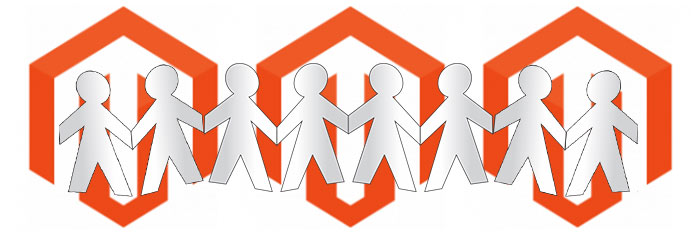
Scalability
Magento uses a cloud infrastructure which supports your website for sudden spikes, when you are or are not expecting an influx of new activity. The infrastructure allows for 500,000 products to be added and over 800,000 orders processed per hour. This means that you can trust in the software, that sales are not going to become lost in busy periods and that stock will always be managed.
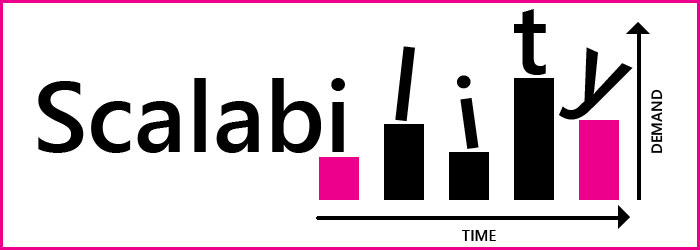
Additional functions and features
Another great thing about Magento is that much like WordPress you can buy additional plugins and extensions in order to customise your site even further to fulfil your requirements. These extensions are usually created by a developer who has come across an issue then decided to create a fix – therefore for almost every question there is a solution.
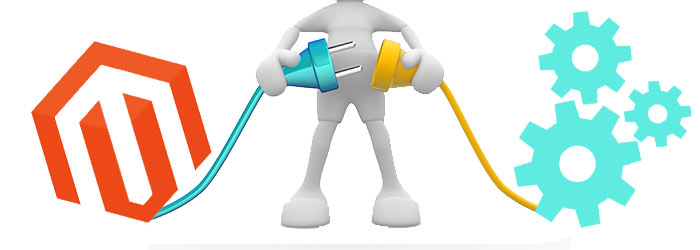
User interface
Magento has a self explanatory user interface which concentrates on making navigation simple and manageable. The generic interface has a visually-enhanced set up that allows you to customise the sections according to your requirements. The built in WYSIWYG allows non-code experts to be able to manipulate what is seen on the front end without messing with the code structure or overall website functionality.
Integrations
Magento has a web integration capability that allows you to build other functionalities into your magento website such as e-bay, paypal, Google and even quickbooks.This makes it accessible to existing businesses who need to expand and use a CMS that has further capabilities, more specific organisation and wider support that other standard shopping sites.
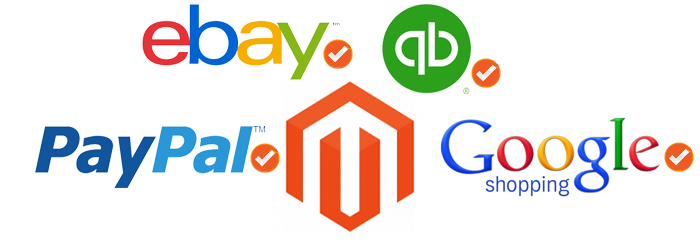
Responsive Themes
Magento website themes are all developed responsively with the ability to move seamlessly from mobile device to desktop and visa versa. This is a vital attribute of an ecommerce site with more and more customers opting to use their mobile phones for on the fly purchases. Being a responsive website is extremely important in todays market and a non-responsive ecommerce site would miss out on around 60% of purchases if not well presented on mobile, according to stats.
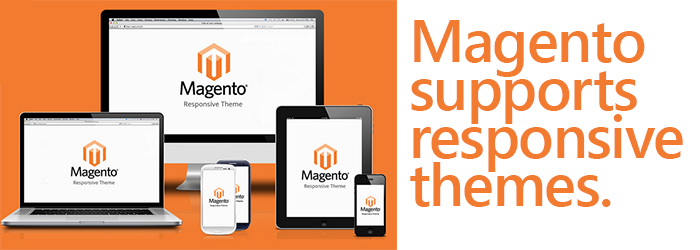
The shopping cart
The shopping cart is the final stage of the shopping process where the payment is made. Magento’s generic cart has an intuitive user interface that can be manipulated further by additional plug-ins in order to fulfil your customers needs. Magento shopping cart plug ins are supported widely by different transaction softwares meaning that the payments are monitored and recorded clearly for both you and your customers.
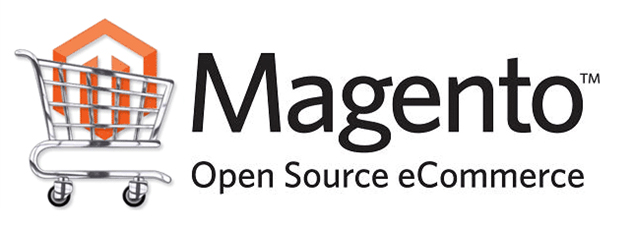
Overall
Magento is the friendly CMS that is flexible and dynamic, and can be moulded to fit your business requirements. With a intuitive visual editor and a large support community it is likely that you will either be able to find your way around the interface design or get quick help with any queries you may have. For an ecommerce website, Magento is the most versatile CMS right now.
If you would like Reactive Graphics to design your new ecommerce website, then pleaseget in touch.

